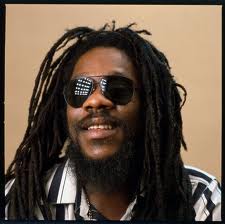IT is most fitting that February is observed as Reggae Month here in Jamaica. It is, after all, the month in which two of Jamaica’s best known proponents of reggae music were born.
We speak here of Messrs Bob Marley and Dennis Brown — Mr Marley on February 6, 1945, and Mr Brown on February 1, 1957.
Both won international acclaim for their music, a sweet, exciting mix of social commentary, lovers’ rock, and — moreso in Mr Marley’s case — radical expression, that spoke to the ordinary Jamaican’s political experiences during the cold war.
Mr Marley, of course, eclipsed Mr Brown as a star on the global stage, and is even more popular today than during his short 36 years on earth.
In fact, Mr Marley’s popularity is borne out in the fact that his Legend album — a compilation released three years after he died in 1981 — is regarded as reggae’s best-selling set with 25-million copies worldwide.
That Mr Marley’s music is as powerful today as it was in the 1970s is testament to his talent, perceptiveness and penchant for perfection — characteristics that are not easily found among artistes, particularly the current generation.
Mr Brown, too, displayed a passion for musical perfection that is clearly demonstrated on the more than 75 albums he recorded which, by any measure, is an impressive feat.
No one can deny that both artists represented the best of Jamaica’s popular music culture, and as such are fully deserving of the recognition accorded to them each year since their passing.

Perhaps it is no mere coincidence that Mr Marley’s best-known manager, the late Mr Don Taylor, was also born in February, on February 10 to be exact. The plan to relaunch his seminal work, Marley and Me, later this year is a sensible one.
It is important, though, that as we reflect on their lives, emphasis is placed on the discipline they applied to their craft.
Mr Marley, in particular, was said to have been meticulous in relation to the sound his band created to blend with his lyrics. In fact, we recall in the early 1990s then Prime Minister Michael Manley hailing Mr Marley, at a function in Mr Marley’s honour in Kingston, as one of the most disciplined Jamaicans ever.
Achieving artistic perfection is not easy. Maintaining it is even more difficult. Therefore, when artistes display that level of excellence their stories should be recorded and shared, not just for their informative value, but also to inspire their fellow men.
While Mr Marley’s life and music have been documented a number of times, we don’t recall seeing any detailed examination of the life of Mr Brown and, indeed, other stalwarts of our culture.

We have already commended, in these columns, local film-maker Mr Lennie Little-White for the documentary he has made on the life and work of Professor Rex Nettleford, a co-founder of Jamaica’s world-acclaimed National Dance Theatre Company.
That documentary will hopefully be premiered this month in keeping with the Nettleford Foundation’s plan to observe the third anniversary of Professor Nettleford’s sudden passing.
Projects like these are vital to the preservation of our culture and heritage. That is why we are critical of the decision, taken in the early 1990s, to scrap the Jamaica Memory Bank project on the basis of lack of funding.
It was an ill-informed decision that has so far robbed us of a rich archive of our heritage. It is, however, not too late to salvage most of what is left. We should not hesitate.



You must log in to post a comment.